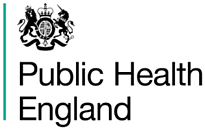 Guest blog by Dr Justin Varney, National Lead for Adult Health and Wellbeing, Public Health England
Guest blog by Dr Justin Varney, National Lead for Adult Health and Wellbeing, Public Health England
Musculoskeletal health issues, along with mental health issues, continue to account for the majority of sickness absence in the UK. It is estimated that 9.5 million working days are lost each year due to musculoskeletal health problems and over a third of all long-term sickness absence in England.
MSK conditions can affect people at any age and at any point in their career. One in eight people of working age in the UK have a musculoskeletal issue and the prevalence of MSK conditions in the workforce is projected to increase to affect over 7 million people by 2030, a reflection of the impact of the ageing working profile.
We also know that MSK conditions can fluctuate and affect work intermittently; they can also be progressive and degenerative and in some case make it hard for an individual to remain in work. In 2015, 13% of recipients of employment and support allowance (ESA) reported MSK as their primary health condition.
MSK is clearly a serious issue also for employers, costing business directly through sickness absence, presenteeism, and the recruitment and retention costs replacing staff members who leave due to MSK. Fortunately, there are many things that employers can do to avoid these preventable costs. By working in partnership with the MSK community through ARMA, PHE is determined to equip employers with the best guidance and the practical tools they need to support all people with MSK conditions to remain in or return to work, wherever possible and appropriate.
 In particular, PHE is delighted to be working with ARMA and Business in the Community to develop a new toolkit for employers on MSK in the workplace, which will launch in Spring 2017. The toolkit will draw together the best evidence-based practice for employers to support staff in the prevention, early identification, management and adaptation for people affected by MSK to help maximise their potential to remain active and productive members of staff.
In particular, PHE is delighted to be working with ARMA and Business in the Community to develop a new toolkit for employers on MSK in the workplace, which will launch in Spring 2017. The toolkit will draw together the best evidence-based practice for employers to support staff in the prevention, early identification, management and adaptation for people affected by MSK to help maximise their potential to remain active and productive members of staff.
The Global Burden of Disease data clearly illustrates that MSK conditions are the single biggest cause of the growing burden of disability in the UK. This is a problem that cannot continue unchecked, and it requires us to refocus our efforts around a holistic, person-centred approach to preventing avoidable disability. To achieve this, we need a genuinely multidisciplinary approach, spanning healthcare, social care and public health, and a concerted approach involving different government departments, the voluntary sector and employers. PHE’s partnership with ARMA is one of the ways in which we feel we can make the best progress in delivering real, lasting change that will enable people living with MSK conditions to remain healthier, independent, socially and physically active, and in work for longer.
See also: ARMA’s page of resources for working with MSK conditions.

